NFT Identity Privacy Calculator
Your Scenario
Results
Imagine you could prove who you are online without handing over your full name, address, or passport number. No more filling out forms for every new website. No more data leaks from centralized servers. That’s the promise of NFT-based digital identity. But here’s the catch: blockchain is public by design. Every transaction, every wallet address, every NFT you own is visible to anyone with an internet connection. So how do you keep your identity private when the system is built to show everything?
Why NFTs Are Great for Ownership, Not Identity
NFTs were never meant to be your driver’s license. They were built to prove you own a digital artwork, a virtual land plot, or a rare game item. That’s their strength. When you buy a Bored Ape, the blockchain records your wallet address as the owner. It’s clear, tamper-proof, and verifiable. But identity? That’s different. Your identity isn’t just what you own-it’s who you are. Your name, age, location, employment history, even your medical records. These aren’t collectibles. They’re private data.That’s why experts at walt.id say it plainly: "NFTs are good for modeling what you own, but not for modeling who you are." Trying to turn an NFT into your digital ID is like using a public billboard to display your social security number. It’s technically possible. But it’s a terrible idea.
The Privacy Problem with Public Blockchains
Most NFTs live on Ethereum and other public blockchains. That means every time you use your NFT to log into a platform, verify your age, or prove you’re a member of a community, the transaction gets recorded. Anyone can trace your wallet. They can see every NFT you’ve ever bought, every marketplace you’ve visited, and every service you’ve accessed.That’s not just embarrassing-it’s dangerous. Imagine a scammer linking your wallet to your real name through public social media posts. Now they know where you live, how much you earn, and what you value. That’s not hypothetical. In 2024, over 12,000 high-net-worth NFT collectors reported targeted phishing attacks based on wallet analysis. Hackers don’t need to break into your account. They just need to follow the trail.
And then there’s GDPR. The European Union’s strict data protection law gives people the right to be forgotten. But blockchains don’t forget. Once data is on-chain, it’s permanent. An NFT tied to your birth date or passport number? That’s a legal liability. No company can legally store that on a public ledger without violating privacy laws.
Secret NFTs: A Privacy Breakthrough
There’s a new kind of NFT changing the game: Secret NFTs. Built on networks like Secret Network, these aren’t your standard ERC-721 tokens. They encrypt metadata. Only the owner can see the full details. The public sees a placeholder. The real data-your ID number, your credentials, your profile-stays hidden.Here’s how it works: You mint a Secret NFT that represents your verified identity. The blockchain records that you own it. But the actual data? Encrypted off-chain. Only when you choose to share it-say, to prove you’re over 21 to enter a virtual club-do you unlock the data using your private key. No one else can see it. Not the platform. Not the blockchain. Not even the creator.
This isn’t science fiction. Platforms like ZKPass and Polygon ID are already using this model to let users prove they’re accredited investors or verified professionals without revealing their names. It’s like showing a bouncer your ID without letting them read your address.
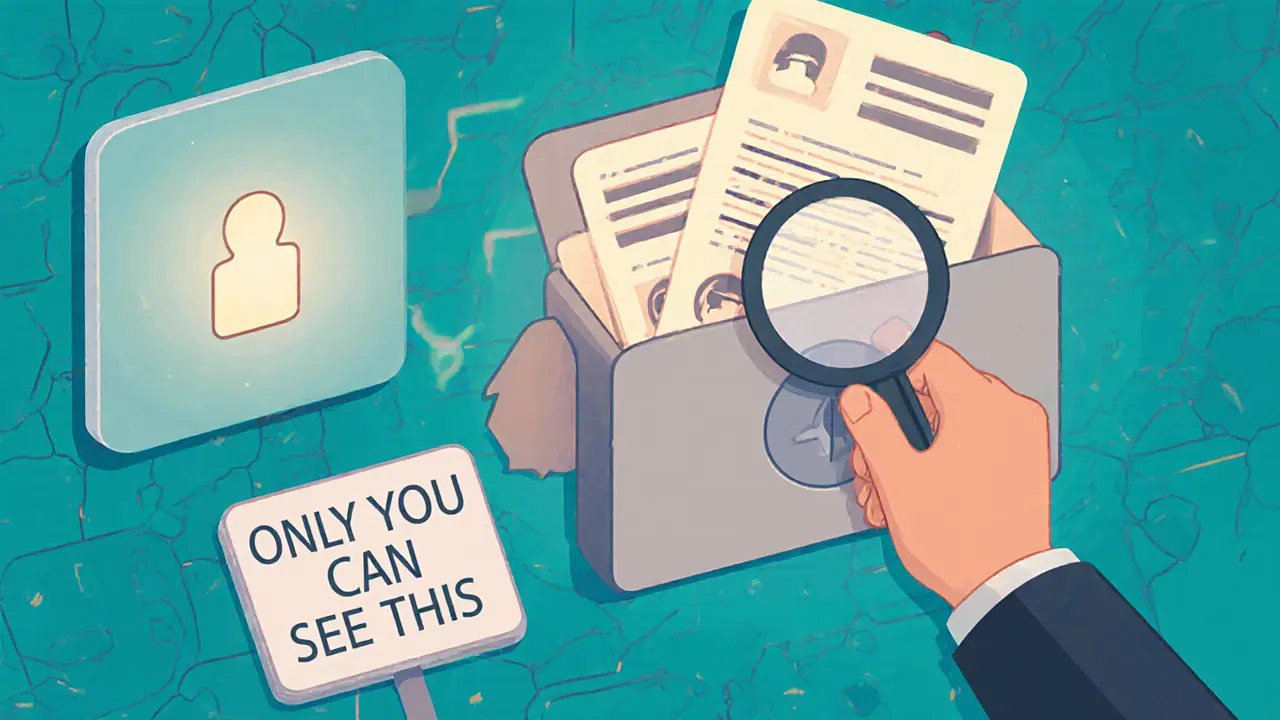
Soulbound Tokens: Identity Without Transfer
Another innovation is soulbound tokens (SBTs). These are NFTs that can’t be sold or transferred. Once issued to your wallet, they stay there forever. Think of them as digital diplomas, memberships, or employment records-permanent proof of your achievements or affiliations.SBTs solve a big problem: reputation. In Web2, your LinkedIn profile can be faked. Your resume can be padded. With SBTs, your credentials are cryptographically tied to your wallet. A university can issue you an SBT for your degree. A community can give you one for contributing to a DAO. It’s verifiable. It’s tamper-proof.
But here’s the twist: SBTs need privacy controls. What if someone else issues you an SBT you didn’t ask for? A spammer could flood your wallet with fake affiliations-"Member of the Elite Club of 2025"-and ruin your reputation. That’s why systems now require explicit consent before an SBT is minted to your wallet. You get to say yes or no. No one can force it.
How NFT Identity Compares to Old Systems
Traditional identity systems? They’re broken. Your data lives in silos: your bank has one copy, your doctor has another, your employer has three. Each one is a target. In 2023, over 500 million records were leaked from centralized identity databases worldwide.NFT-based systems flip that. You own your data. You control who sees it. You don’t need to trust a company to protect it. You use cryptography. You use zero-knowledge proofs to prove you’re eligible without revealing your age or income. You use private networks to keep sensitive data off public ledgers.
But it’s not perfect. Public blockchains still expose patterns. If you always use the same wallet to access medical services, someone could infer your health conditions. If you only log in from certain locations, your movements can be tracked. Privacy isn’t automatic. It has to be built in.
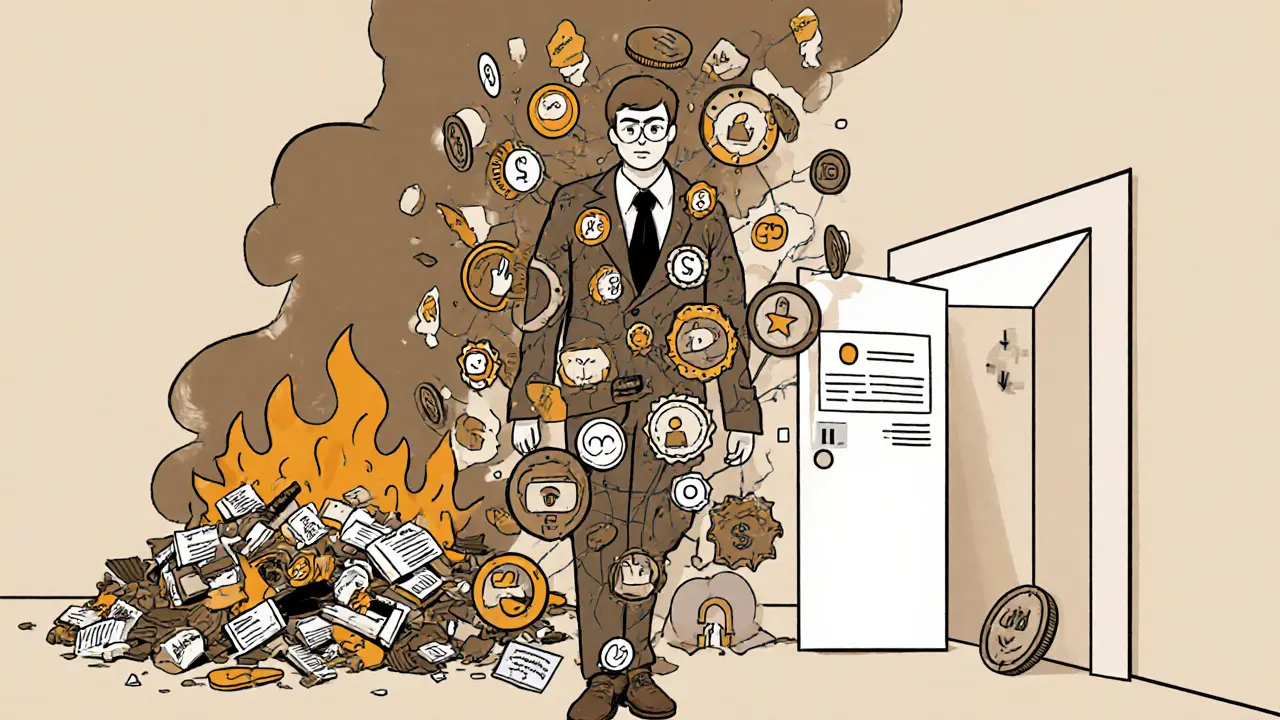
The Real Roadblocks
The biggest problem isn’t tech. It’s adoption.Most people don’t understand wallets, private keys, or gas fees. Asking them to manage their identity like a crypto asset is like asking someone to repair their own car using a YouTube video. If the system is too complex, people won’t use it. And if they don’t use it, privacy doesn’t matter.
Then there’s regulation. The EU, US, and Asia all have different rules. What’s legal in Singapore might be illegal in Germany. A global blockchain can’t comply with 50 different laws. That’s why hybrid systems are rising-on-chain verification, off-chain data storage. The proof is on the blockchain. The details stay private.
And scalability? Still a challenge. Processing thousands of identity checks per second on a blockchain? Not yet. But new layer-2 solutions and privacy-focused chains like Secret Network are getting closer.
What’s Next?
The future of NFT-based identity isn’t about replacing your passport with a token. It’s about giving you control. You’ll still use your government-issued ID for official things. But for everything else-logging into a game, joining a forum, applying for a loan online-you’ll use a private, encrypted NFT that only shares what you allow.Zero-knowledge proofs will let you prove you’re over 18 without showing your birth date. You’ll prove you have a bank account without revealing your balance. You’ll prove you’re a certified professional without listing every job you’ve ever had.
The goal isn’t to make everything public. It’s to make control yours.
Can NFTs really replace traditional IDs like passports?
No, not yet, and probably not for official government use. Passports and driver’s licenses require legal authority and physical verification that blockchains can’t provide. NFTs are better for digital access-logging into apps, proving membership, or verifying credentials online. They complement, not replace, physical IDs.
Are Secret NFTs secure against hacking?
Yes, but only if you protect your private key. Secret NFTs encrypt the data, so even if someone steals your wallet address, they can’t see your identity details. But if they get your key, they can unlock everything. That’s why using a hardware wallet or secure key manager is essential. The tech is strong-it’s the human factor that’s vulnerable.
Do Soulbound Tokens violate privacy by being permanent?
Only if they’re issued without your consent. That’s why modern SBT systems require explicit approval before minting. You can also revoke access to certain SBTs by not sharing them. The permanence is a feature, not a bug-it prevents fraud. But you still control who sees them and when.
Can NFT identity work with GDPR?
Only if the personal data isn’t stored on-chain. GDPR requires the right to delete data. Blockchains can’t delete. So the solution is to store only hashes or proofs on-chain, and keep the real data off-chain in encrypted, deletable storage. That way, you can erase your data without breaking the blockchain.
Is NFT identity only for crypto users?
Not anymore. Platforms are building simple interfaces-like one-click login with email or phone-that hide the blockchain behind the scenes. You won’t need to know what a wallet is. You’ll just get a secure, private digital identity that works like a password, but can’t be stolen in a data breach.






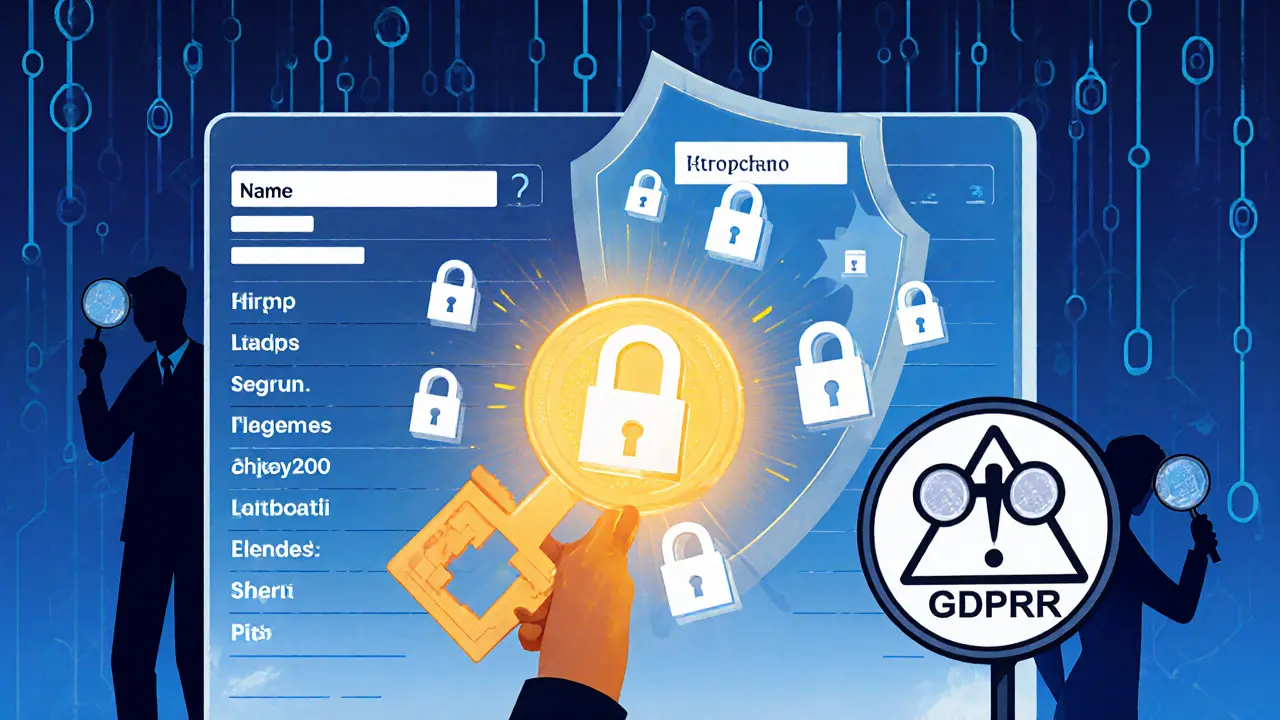
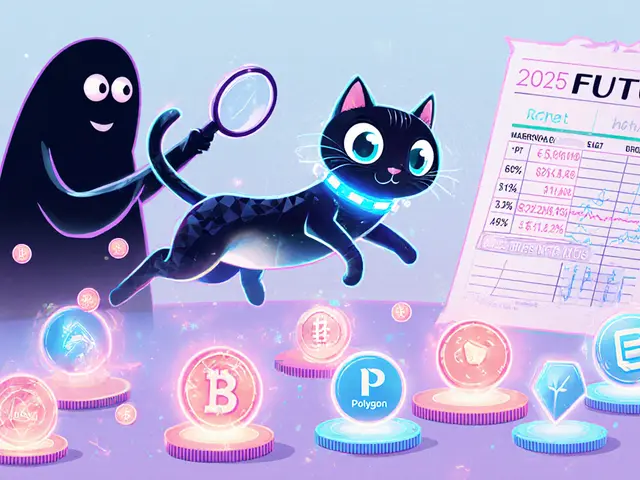


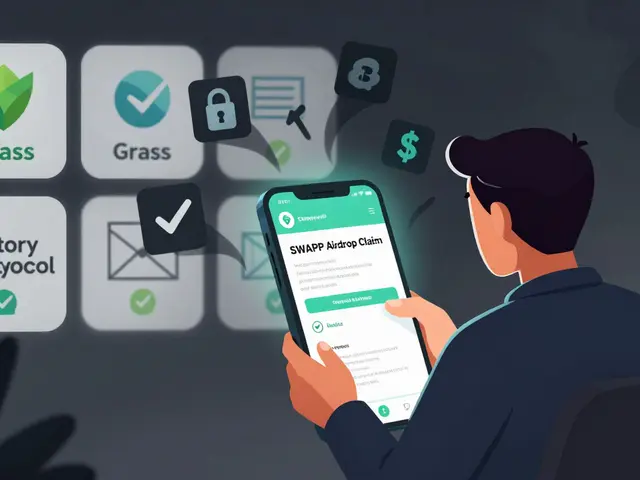
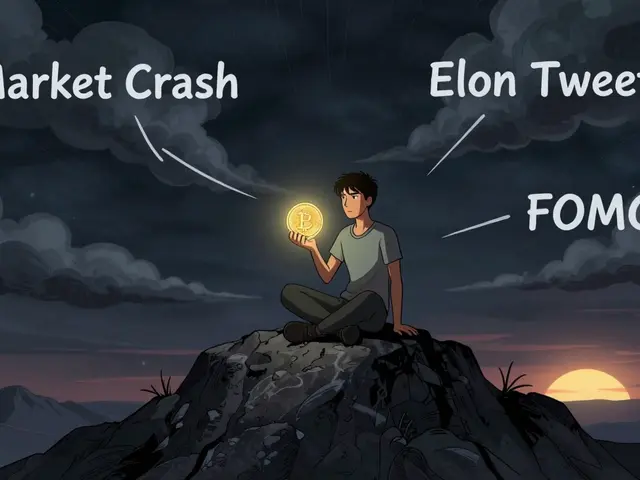
People Comments
NFT identity sounds cool until you realize your wallet’s basically a public diary everyone can read. I bought a few Bored Apes last year and now I get spam every week from people who know exactly how much I spent. Not fun.
Guys, this is actually the most hopeful thing I’ve read about Web3 in months. Secret NFTs + SBTs = the future of digital identity. You don’t need to hand over your entire life to log into a forum. Just prove what’s needed. And no, you don’t need to be a crypto bro to use it - platforms are making it dumb simple now. 🚀
Oh wow so now we’re gonna trust some blockchain to keep our medical records safe? Lol. Next they’ll tell us the NSA is just a misunderstood startup. If your identity is on a public ledger, it’s not private - it’s a target. And don’t even get me started on how governments will weaponize this. They love control. This is just the next flavor of surveillance.
imagine if you could prove you graduated college without showing your transcript or your parents’ names. just a little green checkmark that says ‘yes’ and nothing else. that’s the dream right? no more resume lies. no more background checks that feel like a strip search. i’m here for it
yeah but what if your wallet gets hacked? or you lose your key? then your whole digital life is gone. no reset button. no customer service. just… poof. i’d rather have a password i can reset than a blockchain i can’t undo
That’s why hardware wallets exist. And recovery phrases. And multi-sig. It’s not harder than securing your email. You just need to learn. And honestly? Losing your key is rarer than getting phished through a fake login page. We’ve been doing this for a decade. The tech is solid. The people? That’s the weak link. But we’re getting better.
Let me tell you something - in 2024, I used a ZKPass to prove I was over 21 in a virtual bar in Decentraland. No ID. No name. No selfie. Just a silent cryptographic nod. And I got my digital cocktail. That’s not magic. That’s progress. The future isn’t about showing everything. It’s about revealing just enough. And that’s beautiful.
Interesting how we romanticize privacy while ignoring the fundamental truth: identity is inherently social. You can’t be anonymous and still be trusted. SBTs are the real innovation - they’re not about hiding, they’re about building reputation through permanence. But only if you’re willing to be accountable. The problem isn’t the tech. It’s the modern craving for anonymity without consequence. That’s not freedom. That’s cowardice.
Wait so if I get an SBT from a DAO I didn’t even vote in… can I just ignore it? Or does it haunt me forever like a digital ghost? Because if someone can slap a fake ‘Member of the Elite Club of 2025’ on my wallet and I can’t delete it… that’s not identity. That’s identity terrorism.
Look I’ve been in crypto since 2017 and I’ve seen every hype cycle. But this? This is the one that could actually change how we live online. We’re not talking about replacing passports. We’re talking about replacing the 37 different logins you have to remember just to apply for a credit card. Imagine not having to re-enter your birthdate every time you sign up for something. That’s not futuristic. That’s just common sense. And yeah, it’s not perfect. But neither is your bank’s ‘security’ that got breached last month. We’re upgrading. Let’s not throw the baby out with the blockchain.
Can we just pause and appreciate how wild it is that we’re having this conversation? A decade ago, we were arguing if blockchain was real. Now we’re debating whether your digital soul can be permanently tagged. And honestly? I’m kinda proud. We’re building something that could actually make the internet less creepy. Even if it’s messy. Even if it’s hard. We’re trying. And that matters.
GDPR doesn’t care about your ‘private’ NFTs. If your birthdate is encoded in a metadata hash on-chain, you’re violating Article 17. Period. No amount of zero-knowledge proofs changes the fact that blockchains are immutable. This isn’t innovation - it’s legal suicide for any company trying to deploy this. The EU will shut it down. And they’ll be right.
Secret NFTs are just encryption with a fancy name. If you can’t see the data, how do you verify it’s real? What stops someone from minting a fake ‘verified doctor’ SBT? The system relies on trust in issuers. That’s not decentralized. That’s just centralized with more steps.
Look I’ve been doing this for years and I’ll tell you straight no one gives a shit about your NFT identity unless you’re trying to buy a $100k ape or scam someone. The average person just wants to log in without typing 12 passwords. The tech is cool but it’s not going to replace anything until it’s as easy as clicking Google. Right now it’s a toy for degens with too much time and too little common sense